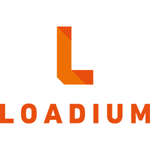Best Load Testing Tool
Best load testing software exists LambdaTest, Load Impact, NeoLoad, Silk Test, and LoadUI Pro. These load testing software determines if a system, software, or computing device can bear high loads given the increased demand for end-users.



No Cost Personal Advisor
List of 20 Best Load Testing Tools
Contenders | 2024
Offers Ruby library for automating tests
Conduct HTTP, HTTPS, and various other web prototype testing to get an HTML report and choose several load statistics by using Apache JMeter. This free & open-source test management software comes with complete flexibility and 100% Java-based functioning. Read Apache JMeter Reviews
Explore various Apache JMeter features, compare the pricing plans, and unlock the potential of seamless operations by selecting the right software for your business.
Apache JMeter Caters to
- StartUps
- SMBs
- Agencies
- Enterprises
Emergents | 2024
Cloud-Based Load Testing in Real Browsers
LoadView platform is used For load testing websites, web applications, APIs, and streaming media with thousands of concurrent connections and real browsers from a fully managed cloud. LoadView is great for DevOps teams and performance testing engineers. Easily and quickly write complicated user scenarios, giving you the freedom to create various test cases for the most sophisticated websites and web apps available today. Additionally, JMeter scripts and Postman Collections for load testing are supported by LoadView. Learn more about LoadView
Explore various LoadView features, compare the pricing plans, and unlock the potential of seamless operations by selecting the right software for your business.
Features
View all LoadView Features- Device Targeting
- Voice / SMS Alerts
- Push Notifications
- Analytics
- Schedulers
- Scheduling
- Channel Attribution
- Web Testing
Pricing
Starter
$ 199
Per Month
Professional
$ 499
Per Month
Advanced
$ 999
Per Month
LoadView Caters to
- StartUps
- SMBs
- Agencies
- Enterprises
Emergents | 2024
Simplify load and performance testing.
Load Runner is a Performance Testing Platform for colocated teams. Our solution simplifies performance load testing. Your teams can quickly identify abnormal application behavior with project-based capabilities. We support performance testing for the most diverse protocols and over 50 technologies and application environments. Using a patented auto-correlation engine, you can quickly identify the most likely causes of performance issues. You can accurately predict application scalability and capacity with accurate emulation of realistic loads. Learn more about LoadRunner
Explore various LoadRunner features, compare the pricing plans, and unlock the potential of seamless operations by selecting the right software for your business.
Features
View all LoadRunner Features- Automatic Configuration
- Test Case Tracking
- A/B Testing
- Server Performance
- Web Testing
- Load Testing
- API Testing
- SSL Offload
LoadRunner Caters to
- StartUps
- SMBs
- Agencies
- Enterprises
Emergents | 2024
Tools by Gatling
Gatling FrontLine is a fully featured Performance Testing Software designed to serve SMEs, Enterprises. Gatling FrontLine provides end-to-end solutions designed for Windows. This online Performance Testing system offers Load Testing, Mobile Testing, Regression Testing, API Testing, Benchmarking at one place. Learn more about Gatling FrontLine
Explore various Gatling FrontLine features, compare the pricing plans, and unlock the potential of seamless operations by selecting the right software for your business.
Features
View all Gatling FrontLine Features- Mobile Testing
- Web Testing
- Load Testing
- Regression Testing
- Benchmarking
- Historical Reporting
- API Testing
Gatling FrontLine Caters to
- StartUps
- SMBs
- Agencies
- Enterprises
Emergents | 2024
Tools by Eggplant
Eggplant is a fully featured Automation Testing Software designed to serve Enterprises, SMEs. Eggplant provides end-to-end solutions designed for Web App. This online Automation Testing system offers Hierarchical View, Availability Testing, Web Testing, Test Script Reviews, Uptime Reporting at one place. Learn more about Eggplant AI
Explore various Eggplant AI features, compare the pricing plans, and unlock the potential of seamless operations by selecting the right software for your business.
Features
View all Eggplant AI Features- Event-Based Notifications
- Web Testing
- Supports Parallel Execution
- Real Time Monitoring
- Test Script Reviews
- UI Testing
- Move & Copy
- Load Testing
Eggplant AI Caters to
- StartUps
- SMBs
- Agencies
- Enterprises
Contenders | 2024
Tools by SmartBear Software
Soap UI is an automated testing tool that is mainly linked with serving different agencies or enterprises. It deals with various functions such as parameterized testing, parallel execution, hierarchical view, etc. It is specially designed for windows. Read SoapUI Reviews
Explore various SoapUI features, compare the pricing plans, and unlock the potential of seamless operations by selecting the right software for your business.
Features
View all SoapUI Features- Parameterized Testing
- Supports Parallel Execution
- Security Testing
- Hierarchical View
SoapUI Caters to
- StartUps
- SMBs
- Agencies
- Enterprises
Emergents | 2024
Tools by RadView Software
WebLOAD is a fully featured Automation Testing Software designed to serve Agencies, SMEs. WebLOAD provides end-to-end solutions designed for Web App. This online Automation Testing system offers Root-Cause Diagnosis, Server Performance, Schedulers at one place. Learn more about WebLOAD
Explore various WebLOAD features, compare the pricing plans, and unlock the potential of seamless operations by selecting the right software for your business.
Features
View all WebLOAD Features- Root-Cause Diagnosis
- Server Performance
- Schedulers
WebLOAD Caters to
- StartUps
- SMBs
- Agencies
- Enterprises
Emergents | 2024
Tools by BlazeMeter
BlazeMeter is an open test management tools that can perform tests for mobile applications, website, and API. It is quick to access and can be accessed anytime from anywhere. It software testing tools have many characteristics, namely, functional and performance testing, real-time analyzing, integrating multi-geo locations into a single report, integrating with Google Analytics, and so on. Learn more about BlazeMeter
Explore various BlazeMeter features, compare the pricing plans, and unlock the potential of seamless operations by selecting the right software for your business.
Pricing
Free
$ 0
Per Month
Basic
$ 99
Per Month
Pro
$ 499
Per Month
BlazeMeter Caters to
- StartUps
- SMBs
- Agencies
- Enterprises
Contenders | 2024
Tools by Tricentis
Tricentis Tosca is a fully featured App Development Software designed to serve Enterprises, SMEs.Tricentis Tosca provides end-to-end solutions designed for Web App. This online App Development system offers Test Script Reviews, Supports Parallel Execution, Parameterized Testing, Unicode Compliance, Requirements-Based Testing at one place. Read Tricentis Tosca Reviews
Explore various Tricentis Tosca features, compare the pricing plans, and unlock the potential of seamless operations by selecting the right software for your business.
Features
View all Tricentis Tosca Features- Supports Parallel Execution
- Collaboration Tools
- Test Script Reviews
- API Design
- Move & Copy
- Audit Management
- Collaboration
- Hierarchical View
Tricentis Tosca Caters to
- StartUps
- SMBs
- Agencies
- Enterprises
Emergents | 2024
No learning curve. Just real-world accuracy.
LoadNinja is a performance testing tool that enables the user to load tests created by testers of all backgrounds and levels of experience. The browser-based method of LoadNinja replaces load emulators with actual browsers, eliminates time-consuming correlations, and produces accurate, valuable findings. Reduce testing time with scriptless tests that record client-side interactions, quickly spot performance bottlenecks, and fix issues in real time. Learn more about LoadNinja
Explore various LoadNinja features, compare the pricing plans, and unlock the potential of seamless operations by selecting the right software for your business.
Features
View all LoadNinja Features- Parallel Testing
- Test Script Reviews
- Regression Testing
- Mobile Testing
- Benchmarking
- Cross Browser Testing
- API Testing
- Historical Reporting
Pricing
On-Demand
$ 287
Per Month
Subscription
$ 239
Per Month
LoadNinja Caters to
- StartUps
- SMBs
- Agencies
- Enterprises
Emergents | 2024
Tools by Etnetera
SmartMeter.io is a fully featured Automation Testing Software designed to serve Startups, SMEs. SmartMeter.io provides end-to-end solutions designed for Web App. This online Automation Testing system offers Test Script Reviews at one place. Learn more about SmartMeter.io
Explore various SmartMeter.io features, compare the pricing plans, and unlock the potential of seamless operations by selecting the right software for your business.
Features
View all SmartMeter.io Features- Test Script Reviews
SmartMeter.io Caters to
- StartUps
- SMBs
- Agencies
- Enterprises
Emergents | 2024
Tools by Testinium
Loadium is a fully featured Performance Testing Software designed to serve Enterprises, SMEs and StartUps. Loadium provides end-to-end solutions designed for Web App and Android. This online Performance Testing system offers Web Testing, API Testing, Benchmarking, Historical Reporting, Load Testing and Parallel Testing at one place. Learn more about Loadium
Explore various Loadium features, compare the pricing plans, and unlock the potential of seamless operations by selecting the right software for your business.
Features
View all Loadium Features- Historical Reporting
- Benchmarking
- Web Testing
- Load Testing
- Parallel Testing
- API Testing
Loadium Caters to
- StartUps
- SMBs
- Agencies
- Enterprises
Emergents | 2024
Tools by Loadster, Inc
Loadster is a fully featured Performance Testing Software designed to serve Agencies, Enterprises. Loadster provides end-to-end solutions designed for Web App. This online Performance Testing system offers API Testing, Parallel Testing, Web Testing, Load Testing, Regression Testing at one place. Learn more about Loadster
Explore various Loadster features, compare the pricing plans, and unlock the potential of seamless operations by selecting the right software for your business.
Features
View all Loadster Features- Web Testing
- Parallel Testing
- Benchmarking
- Regression Testing
- Historical Reporting
- Load Testing
- API Testing
Pricing
PROTOCOL BOTS
$ 199
Per Month
BROWSER BOTS
$ 399
Per Month
Loadster Caters to
- StartUps
- SMBs
- Agencies
- Enterprises
Contenders | 2024
Tools by New Relic
New Relic is an APM monitoring tool for software developers and IT professionals. This program offers memory usage optimization, CPU utilization, code profiling, database query performance, web browser rendering performance, and error analysis features. Read New Relic Reviews
Explore various New Relic features, compare the pricing plans, and unlock the potential of seamless operations by selecting the right software for your business.
Features
View all New Relic Features- Full Transaction Diagnostics
- Trace individual transactions
- Event Logs
- Uptime Reporting
- Server Performance
- Event-Based Notifications
- Diagnostic Tools
- Real Time Monitoring
New Relic Caters to
- StartUps
- SMBs
- Agencies
- Enterprises
Emergents | 2024
Tools by Parasoft Corporation
Parasoft is the leading test management tools used to deliver top-quality software very fast. This Software Testing tools are especially suitable for test lab management, development testing, and API security testing, web UI testing and so on. It supports a wide range of environment including platforms, protocols, messaging formats and much more. Learn more about Parasoft
Explore various Parasoft features, compare the pricing plans, and unlock the potential of seamless operations by selecting the right software for your business.
Parasoft Caters to
- StartUps
- SMBs
- Agencies
- Enterprises
Emergents | 2024
Tools by Neotys
NeoLoad is a fully featured Automation Testing Software designed to serve Agencies, Startups. NeoLoad provides end-to-end solutions designed for Windows. This online Automation Testing system offers Authentication, Automatic Configuration, API Testing at one place. Learn more about NeoLoad
Explore various NeoLoad features, compare the pricing plans, and unlock the potential of seamless operations by selecting the right software for your business.
Features
View all NeoLoad Features- API Testing
- Authentication
- Automatic Configuration
NeoLoad Caters to
- StartUps
- SMBs
- Agencies
- Enterprises
Emergents | 2024
Accelerating API Quality Through Testing
ReadyApi enables the user to accelerate API quality for Agile and DevOps software, which allows teams to build, manage, and run automated functional security and performance tests of RESTful, SOAP, Kafka, and other web services in one unified interface inside your CI/CD pipeline. Start by importing OpenAPI/Swagger or AsyncAPI definitions, testing and capturing real-time API traffic, or virtualizing web services to eliminate pipeline dependencies. Learn more about ReadyAPI
Explore various ReadyAPI features, compare the pricing plans, and unlock the potential of seamless operations by selecting the right software for your business.
Features
View all ReadyAPI Features- Debugging
- Web Testing
- Performance Management
- Virtual Machine Monitoring
- Cross Browser Testing
- Archiving & Retention
- API Testing
- Data storage management
Pricing
API Test Module
$ 829
Per Year
API Performance Module
$ 6769
Per Year
API Virtualization Module
$ 1270
Per Year
ReadyAPI Caters to
- StartUps
- SMBs
- Agencies
- Enterprises
Emergents | 2024
Transform Your Software Quality with AI
AI-based test automation system helps enterprises improve their applications' performance and security. Our revolutionary AI and autonomous testing platform, Appvance IQ (AIQ), finds more defects than any other automation while lowering test development and execution expenses. Low-code to no-code testing. Complete UI and API. Designed to provide developers and QA teams more control. Learn more about Appvance.ai
Explore various Appvance.ai features, compare the pricing plans, and unlock the potential of seamless operations by selecting the right software for your business.
Features
View all Appvance.ai Features- Test Script Reviews
- A/B Testing
- API Testing
- UI Testing
- Parallel Testing
- Testing / QA Management
- Load Testing
- Debugging
Appvance.ai Caters to
- StartUps
- SMBs
- Agencies
- Enterprises
Emergents | 2024
Tools by SmartBear Software
LoadUI Pro is a fully featured Performance Testing Software designed to serve Enterprises, Startups. LoadUI Pro provides end-to-end solutions designed for Macintosh. This online Performance Testing system offers API Testing, Cross Browser Testing, Load Testing, Parallel Testing, UI Testing at one place. Learn more about LoadUI Pro
Explore various LoadUI Pro features, compare the pricing plans, and unlock the potential of seamless operations by selecting the right software for your business.
Features
View all LoadUI Pro Features- UI Testing
- API Testing
- Parallel Testing
- Load Testing
- Cross Browser Testing
LoadUI Pro Caters to
- StartUps
- SMBs
- Agencies
- Enterprises
Contenders | 2024
Tools by HeadSpin
HeadSpin is an automated testing solution designed for businesses, enterprises, web/mobile application developers, IoT companies, & 5G Telcos. The software offers training via webinars, documentation, & live online sessions. It also offers a free trial period. Read HeadSpin Reviews
Explore various HeadSpin features, compare the pricing plans, and unlock the potential of seamless operations by selecting the right software for your business.
HeadSpin Caters to
- StartUps
- SMBs
- Agencies
- Enterprises
Load testing has become essential for delivering high-performance web and mobile applications. Choosing the correct load testing tool validates that apps handle expected user volumes without performance issues. Load testing simulates hundreds to millions of concurrent virtual users. It identifies bottlenecks under realistic loads.
This guide aims to help select the right platform based on app needs, team skills, and organizational requirements by outlining the top solutions and critical differentiators. So, let’s dive in for the best load testing API tools.
What Is a Load Testing Tool?
A load testing tool is a tool used to test software apps under different conditions. It simulates several virtual users logging in at once. It is to locate performance problems and errors and assess the application's general resilience.
Load testing can assess how the application will behave. This is a performance test done by subjecting an application to high-traffic quantities. As a result, it evaluates the system or web app’s performance as user demand rises and seeks to highlight problems under realistic, anticipated user load levels.
We know about the application load testing tools, but who are the people who use these top load testing tools? Let us find out.
Who Uses Website Load Testing Tools?
The utilization of website load testing tools spans various industries and roles. Also, they are all united by the goal of delivering efficient and responsive online experiences. So let's take a look at the several roles where these tools are used:
-
Developers and engineers
Developers and engineers use load testing during coding. They run performance tests to make sure performance targets are met. As a result, the testing by developers also prevents issues further down the line.
-
Quality assurance (QA) engineers
Quality assurance (QA) engineers run load tests. The QA engineers meet response time and scalability targets by validating the apps. So, their tests confirm that the performance SLAs are satisfied.
-
DevOps and site reliability engineers (SREs)
DevOps and site reliability engineers (SREs) integrate load testing into deployment pipelines. Moreover, testing during releases guards against performance regressions between versions.
-
System architects
System architects leverage load tests to determine infrastructure sizing for production environments. Tests also help optimize hosting costs while conducting performance testing and still meeting SLAs.
Organizations can release high-performing and scalable load testing applications to their customers. This is by running frequent load tests and also making them part of the software delivery lifecycle.
However, a question that might arise now is whether this tool has any benefits in software testing services. Well, yes, there are! So, in the next section, we will explore those in detail.
Benefits of Load Testing Tools for Web Applications
Adopting the best load testing tool early and making it a regular practice while testing softwares provides many benefits. Let us look at those benefits -
-
Performance validation
Load tests serve a crucial purpose by validating the attainment of performance SLAs and response time targets. It ensures their mettle under anticipated real-world user volumes prior to launch. As a result, these tests provide confirmation of a system's capability. This is to handle the intended volume of concurrent users. Moreover, the tests also offer a preemptive glimpse into how the system will perform under demanding conditions.
-
Scalability assessment
Incremental load tests help determine how well applications scale up. Moreover, these tests identify at what number of concurrent users' performance starts to degrade. This is as the load increases over time. By gradually increasing the user load, these tests provide valuable insights. It is into the application's capacity and potential bottlenecks. So, it aids in proactive optimization efforts.
-
Bottleneck identification
Load tests play a crucial role in identifying system bottlenecks. It encompasses issues like database connection saturation or memory leaks. The process of recognizing and addressing these bottlenecks enhances overall application performance. Moreover, it also ensures a smoother user experience. So, by conducting thorough load testing, organizations can proactively optimize their operating systems.
-
Optimization opportunities
Load testing plays a crucial role in identifying necessary coding adjustments. This is to meet performance SLAs under varying loads. Moreover, the insights derived from these test results serve as invaluable guidance. This is for fine-tuning and optimizing the overall application performance. The iterative process ensures a robust and responsive digital environment for users.
-
Capacity planning
Load test user volume and resource utilization profiles guide appropriate sizing of production infrastructure. This allows businesses to allocate resources accurately. By simulating realistic scenarios, these tests enhance performance. It also contributes to cost-effective hosting solutions. Moreover, this strategic approach ensures that websites can handle traffic fluctuations.
-
Infrastructure optimization
Performance benchmark data gathered during the testing process enables optimizing infrastructure sizing. Furthermore, it aids in identifying potential bottlenecks. This invaluable insight allows for proactive configuration adjustments. That too before the website's official launch. As a result, it ensures a smoother user experience and minimizes potential disruptions.
-
Continuous monitoring
Integrating regular load testing into CI/CD pipelines enables continuous performance monitoring. This proactive approach helps in early identification and mitigation of performance regressions. By automating load tests within the development workflow, potential slowdowns can be addressed. Moreover, this ensures consistent quality before they impact the end-user experience.
Ending here with the benefits, let us now look at the features of load testing software.
Features of Load Testing Software
Load testing tools provide extensive capabilities to validate application performance under heavy user loads. Moreover, the top solutions simulate real-world conditions at scale. Hence, in the following section, let us take a look at the following feature set:
-
Load generation
Load testing tools can simulate the behavior of thousands or even millions of users accessing a website. This sophisticated emulation accurately replicates real-world user traffic patterns. Moreover, it provides valuable insights into a website's performance. Furthermore, it also provides insight into the responsiveness during periods of peak demand.
-
Scalability testing
By gradually augmenting the load across several test iterations, the ability of the application to scale becomes evident. These tests play a crucial role in identifying the specific juncture. So, this is at which performance starts to deteriorate as the load amplifies. Also, it empowers developers to enact precise enhancements, ensuring a smooth user experience.
-
Realistic scenarios
Advanced tools create complex user journeys across app functions. It replicates intricate real-world workflows even under heavy load. This approach ensures a comprehensive assessment of system capabilities. To achieve accurate results, load tests must model the patterns and behaviors expected.
-
Scripting and recording
Writing test scripts or recording user sessions models real interactions to simulate real users. This enables authentic and repeatable load tests with the best API load testing tools. These meticulously crafted scripts mimic various user pathways. So, this generates comprehensive data on system performance. As a result of conducting performance tests, bottlenecks can be identified and resolved before actual users are impacted.
-
Distributed testing
Running large load tests across multiple machines significantly enhances load generation ability. This aspect is crucial, particularly when testing the performance of modern web/mobile applications. By distributing the load generator among multiple machines, testing processes can more accurately replicate real-world user traffic. This allows for a comprehensive evaluation of system performance under varying conditions.
-
Thresholds and alerts
Website load testing tools offer the advantage of configuring specific performance thresholds for various metrics. These tools not only enable the establishment of these benchmarks but also incorporate alert systems. These alerts play a crucial role. This is done by promptly informing users if the average response time surpasses the predetermined limits.
-
Concurrency testing
Testing application behavior under contention identifies race conditions. Hence, this type of load testing involves imitating a diverse set of users. Concurrent users often create resource conflicts, highlighting the importance of load testing. This is to ensure smooth functionality and seamless user experiences, especially during peak traffic periods.
By leveraging these extensive features, teams can validate performance early and continuously. In fact, load testing gives confidence in delivering delightful digital experiences.
You now know about the unmatched features of the software, but exactly how do you select a software? That is equally important for you to extract the maximum benefits, right? Let us see.
How to Select the Ideal Load Testing Software?
Choosing the right load testing tool is crucial for validating application performance. As a result, evaluating key criteria and aligning test coverage to use cases ensures load test runs by the software are an optimal fit. So let’s take a look -
-
Identify performance targets
Define performance Service Level Agreements (SLAs). This includes setting maximum response times. These benchmarks dictate the extent of load generation. It is necessary to simulate peak traffic conditions accurately. Moreover, it's worth noting that more intricate applications often demand the utilization of advanced load testing tools. This is to assess their actual performance under varying scenarios comprehensively.
-
Analyze use cases
Reviewing various scenarios, such as workflows, integrations, and data, becomes crucial. This is in determining the necessary performance testing tools and capabilities. Each scenario presents unique challenges, underscoring the need for specific tool features. Understanding these complexities ensures that the chosen website load testing tool aligns effectively. This is with the scope and demands of the project.
-
Assess internal skills
Consider expertise in scripting, metrics analysis, and results correlation. This impacts tool choices like code-free or open-source. Proficiency in scripting languages such as Python or JavaScript enables deeper customization of tests. Skill in metrics analysis ensures meaningful insights from load test results. The choice between code-free commercial tools and open-source options depends on these skill sets.
-
Examine integrations
Evaluate the existing DevOps tech stack and the need for CI/CD integration. This involves assessing the compatibility of tools with established pipelines and monitoring stacks. Moreover, by aligning these components effectively, teams can streamline workflows. They can also enhance collaboration and ensure a seamless integration of processes.
-
Compare support levels
For enterprise-critical apps, consider product support response times and expertise access. Swift response times ensure seamless troubleshooting, minimizing downtime. Additionally, easy access to specialized expertise guarantees effective resolution of complex issues. This safeguards the continuity and optimal performance of your vital applications.
-
Balance cost and sophistication
An open-source option can meet basic load testing needs first before scaling up tools. This approach allows for cost-effective testing in the early stages. As requirements expand, transitioning to more robust solutions becomes seamless. So, it ensures comprehensive performance evaluation as projects evolve.
Following a structured selection process ensures load testing tools match current and future performance validation requirements.
Challenges of Load Testing Tools for Web Applications
While providing immense value, load testing tools also come with some challenges. These are the ones that teams need to address to leverage them effectively. So, let's take a look:
-
Complexity of test scenarios
Creating truly realistic load test scenarios is difficult and time-consuming. Simple recorded scripts do not mimic real-world usage patterns. Engineers must analyze production traffic to model user workflows. Complex journeys with contextual logic are hard to script. So, tests need constant updating as the application changes.
-
Data management
Generating and managing large test data sets is challenging. Data must be properly anonymized while maintaining referential integrity. Masking sensitive information like PII is essential. Tests need to handle dynamic data elements and provide data sources for read/write operations. Furthermore, cleaning up test data after runs avoids storage bloat.
-
Scripting and maintenance
Scripting authentic user interactions requires software programming skills. Code must handle dynamic UI elements and recover from errors. Maintaining scripts is tedious as the application evolves across releases. Neglected scripts degrade test fidelity and also value over time.
-
Dynamic applications
Modern web and mobile apps strain test tools with dynamic content, personalization, and live data connections. Simulating unique user contexts is hard. Stateful journeys must be scripted. Scaling up data generation adds overhead. So, performance varies based on back-end integration.
We have a full understanding of the load testing software and top performance testing tools. Now, we will learn about some of the future trends you can see in it.
What Are the Future Trends of Load Testing Tools for Web Applications?
This section offers a glimpse into the evolving landscape of web application load testing. Discover the emerging trends and innovations that are shaping the way load testing tools enhance performance and scalability -
-
Shift left testing and DevOps practices
Load testing will integrate earlier in DevOps, enhancing agility. This approach will promote collaboration between developers and testers. As a result, it leads to faster issue resolution and improved application quality.
-
Cloud-based load testing and scalability
Cloud platforms will offer scalable resources for realistic load simulations. This trend will allow businesses to test applications under different user loads—that, too, without investing in dedicated hardware.
-
AI and ML integration for advanced analysis
Load testing tools will leverage AI/ML. It is to automate result analysis, predict bottlenecks, and optimize tests. So, with AI-driven insights, performance engineers can focus on strategic improvements.
-
Containerization and microservices impact on load testing
Microservices will demand adaptable load tests and challenging tools. It is to simulate complex interactions accurately. Load testing tools will evolve to orchestrate testing across interconnected microservices.
-
Incorporating security testing into load testing
Load testing will combine with security assessment, ensuring apps are robust. By exposing vulnerabilities under stress, organizations can rectify issues before deployment. This will enhance overall application resilience.
As technology advances, the future of load testing tools for web applications holds exciting possibilities. These trends promise to revolutionize how we ensure optimal performance and user satisfaction.
Conclusion
Load testing tools deliver immense value by validating application performance under load. They provide the capabilities required by most organizations. Moreover, integrating load testing into the development lifecycle prevents performance issues before launch. While executing load tests at scale has common challenges, the benefits far outweigh the required effort and make it an essential practice. However, don’t miss out on professional assistance in case of doubt!
FAQs
The pricing for load testing tools varies widely based on capabilities. Open-source tools are free, while commercial solutions range from $500 to $5000+ per month. Enterprise-grade tools for large organizations are typically $10,000+ per month.
Yes, most enterprise load testing tools provide easy integration with CI/CD servers like Jenkins and Bamboo. This allows automating tests across pipeline stages and detecting performance regressions between releases.
Common metrics include response time, throughput, and bandwidth utilization. It also includes concurrent user-supported and server resource usage, e.g., CPU, memory, and disk. Furthermore, error rate tracking is also essential.
Granular transaction profiling highlights slow code paths. Database and network monitors reveal bottlenecks. Tools track resource saturation points. So, these insights enable code and infrastructure tuning to improve scalability.






















